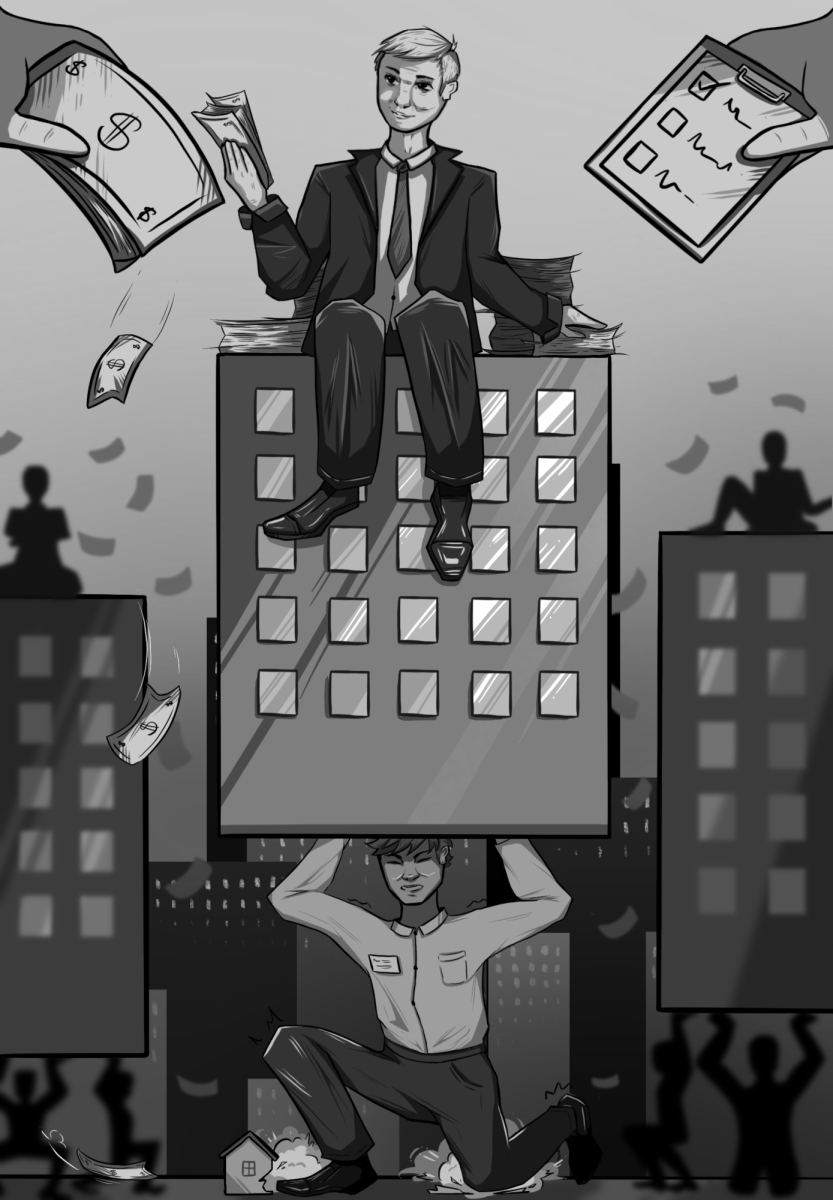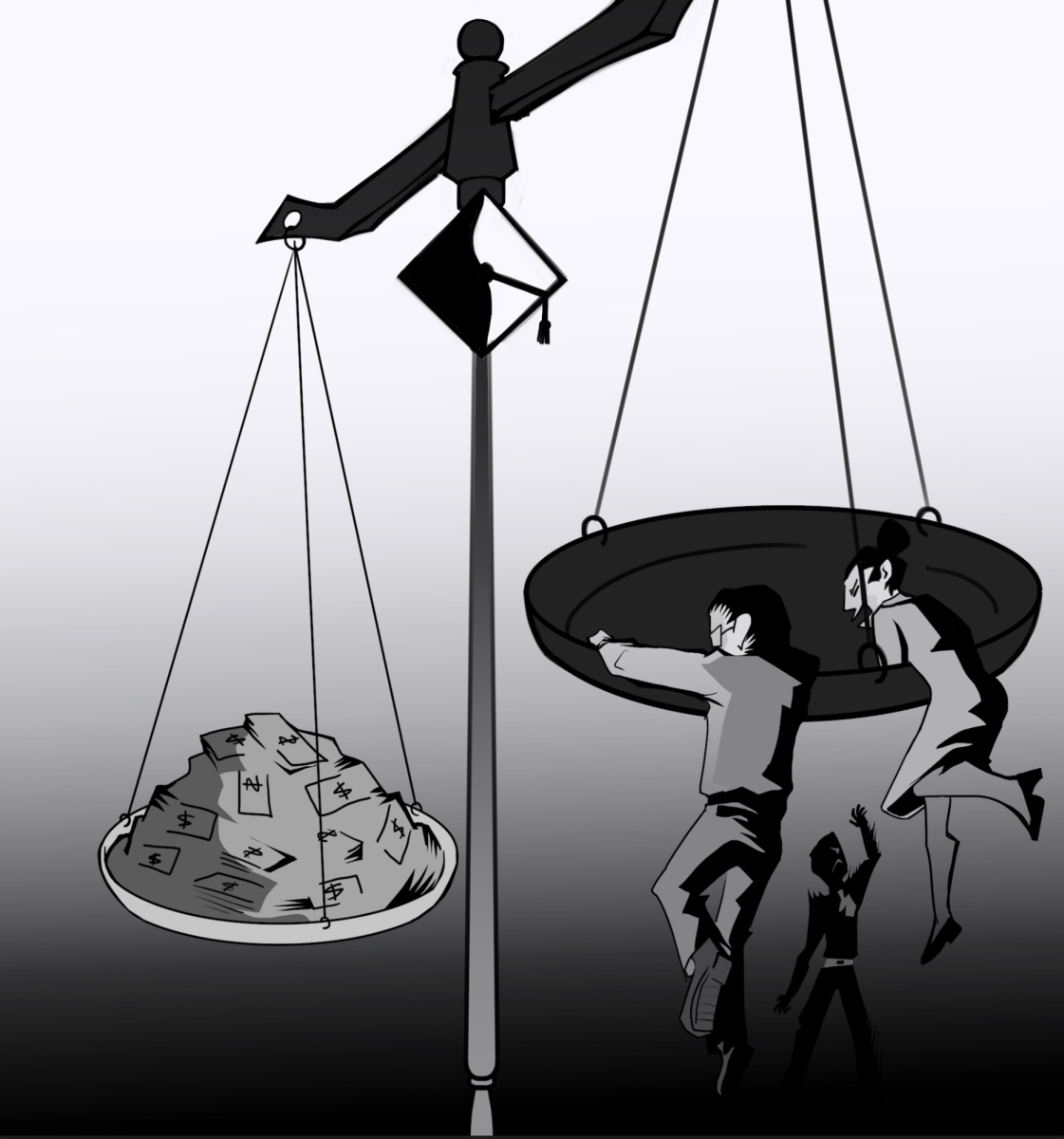Corruption has lurked beneath the City of Kindness’s superficial veneer for ages, as exposed by an investigative report released in July of this year. The dark side of Anaheim continues rearing its head in the city council’s biased approach to Measure A, calling for more regulation and awareness around corporate lobbying.
In the wake of an FBI investigation last year, city officials commissioned an investigation into the city by the legal firm JL Group. The 353-page report released to the public on July 31, detailing confidential city council information leaks to resort and developer interests. Anaheim’s corruption runs deep — the former Mayor Harry Sidhu was allegedly involved in a “potential criminal conspiracy” where $1.5 million of COVID relief money was illicitly diverted to the Chamber of Commerce (which “acted virtually as a money-laundering operation”). Loose regulation over lobbyists prevails with falsely reported lobbying activities. Ultimately, these developments unveil how citizen interests are easy to forget when influence peddling remains rampant. Influence peddling (where connections are used in exchange for favors) reflects city officials’ greed over care for their actual residents — especially for a measure that directly challenges the revenues of the largest businesses in Anaheim.
On Oct. 3, Anaheim residents voted in a special election on Measure A which would provide hotel and event workers a $25 minimum wage, workload restrictions, and safety protections. About 66% of voters opposed the measure, though the measure’s conditions doomed it from the start. Anaheim City Council chose to hold a special election for Measure A rather than place it on the general election ballot, claiming to address economic concerns sooner — a hypocritical notion considering that the special election costs $1.3 million more than a general election ballot, while having historically lower voter turnout. Currently, five out of the six council members were supported by resort funding in their respective city council campaigns, reflecting ulterior motives for a special election. In the past decade alone, Disney has spent over $7.5 million in city council campaigns, swaying votes much more significantly than any other local business.
The disproportionate amount of funding provided by Measure A opponents versus supporters poses another concern. With hotel corporations including Disney Worldwide Services and Marriott International sponsoring the campaign against Measure A, it has raised $3.2 million — five times the amount of funding as the union supporting the measure. Combined with special elections’ typical lower voter turnout, the playing field was designed to be significantly imbalanced in favor of powerful corporations.
In terms of Measure A, reducing hotel revenue could pose negative consequences for Anaheim residents, but a “gate tax” on tickets to major attractions could resolve it. A 2% ticket tax would allow tourists to bear the burden of reduced hotel revenues rather than Anaheim residents, while appearing minimal compared to yearly markups in Disney’s ticket prices. Supporters claim it could generate $55-82 million in tax revenue. However, the city council has repeatedly refused to vote on the tax themselves, much less allowing residents to vote on it — unsurprising considering four council members at the time of the most recent vote had campaigns funded by Disney.
Behind the numbers, it’s important to remember the workers responsible for Anaheim’s economy. Hospitality sustains Anaheim. Disneyland Resort generates $8.5 billion in economic activity for the region, according to the Anaheim Chamber of Commerce. Over 25 million people visit the Anaheim Resort District annually, where 100 businesses are located providing 160,000 jobs. In this multimillion dollar industry, hospitality workers are the backbone that allows Anaheim to thrive — yet, these workers struggle to get by. Anaheim council members’ reluctance to improve conditions for Anaheim’s crucial workers demonstrates how tourists are valued more than workers who struggle paycheck to paycheck.
Ultimately, Anaheim needs to recognize resident and worker interests through giving them the opportunity to vote on important issues rather than sweeping them under the rug. If corporate interests rule the city, then the workers who sustain these entities deserve a livable wage. For the City of Kindness to live up to its name, workers and residents must come first.





























































